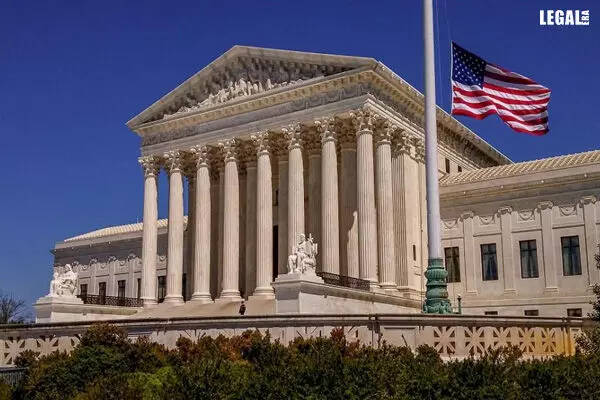- Home
- News
- Articles+
- Aerospace
- Agriculture
- Alternate Dispute Resolution
- Banking and Finance
- Bankruptcy
- Book Review
- Bribery & Corruption
- Commercial Litigation
- Competition Law
- Conference Reports
- Consumer Products
- Contract
- Corporate Governance
- Corporate Law
- Covid-19
- Cryptocurrency
- Cybersecurity
- Data Protection
- Defence
- Digital Economy
- E-commerce
- Employment Law
- Energy and Natural Resources
- Entertainment and Sports Law
- Environmental Law
- FDI
- Food and Beverage
- Health Care
- IBC Diaries
- Insurance Law
- Intellectual Property
- International Law
- Know the Law
- Labour Laws
- Litigation
- Litigation Funding
- Manufacturing
- Mergers & Acquisitions
- NFTs
- Privacy
- Private Equity
- Project Finance
- Real Estate
- Risk and Compliance
- Technology Media and Telecom
- Tributes
- Zoom In
- Take On Board
- In Focus
- Law & Policy and Regulation
- IP & Tech Era
- Viewpoint
- Arbitration & Mediation
- Tax
- Student Corner
- AI
- ESG
- Gaming
- Inclusion & Diversity
- Law Firms
- In-House
- Rankings
- E-Magazine
- Legal Era TV
- Events
- News
- Articles
- Aerospace
- Agriculture
- Alternate Dispute Resolution
- Banking and Finance
- Bankruptcy
- Book Review
- Bribery & Corruption
- Commercial Litigation
- Competition Law
- Conference Reports
- Consumer Products
- Contract
- Corporate Governance
- Corporate Law
- Covid-19
- Cryptocurrency
- Cybersecurity
- Data Protection
- Defence
- Digital Economy
- E-commerce
- Employment Law
- Energy and Natural Resources
- Entertainment and Sports Law
- Environmental Law
- FDI
- Food and Beverage
- Health Care
- IBC Diaries
- Insurance Law
- Intellectual Property
- International Law
- Know the Law
- Labour Laws
- Litigation
- Litigation Funding
- Manufacturing
- Mergers & Acquisitions
- NFTs
- Privacy
- Private Equity
- Project Finance
- Real Estate
- Risk and Compliance
- Technology Media and Telecom
- Tributes
- Zoom In
- Take On Board
- In Focus
- Law & Policy and Regulation
- IP & Tech Era
- Viewpoint
- Arbitration & Mediation
- Tax
- Student Corner
- AI
- ESG
- Gaming
- Inclusion & Diversity
- Law Firms
- In-House
- Rankings
- E-Magazine
- Legal Era TV
- Events
U.S. Supreme Court Rejected Teva’s Challenge to $235 Million GSK Award in Patent Dispute

U.S. Supreme Court Rejected Teva’s Challenge to $235 Million GSK Award in Patent Dispute
The U.S. Supreme Court refused to hear Teva Pharmaceuticals U.S.A. Inc’s challenge to a $235 million award to GlaxoSmithKline LLC in a patent dispute over generic drugs involving a heart medication.
The Jury dismissed the Israel-based Teva’s appeal filed against the Lower Court’s ruling reinstating the jury award for U.K.-based GSK.
The case involved “skinny labels,” which allow generic drugmakers to avoid patent lawsuits if a generic drug’s label omits potentially infringing uses of a brand-name drug.
In 2014, GSK filed a lawsuit against Teva in Delaware Federal Court over its generic version of GSK's heart drug Coreg.
Teva defended stating that it had followed U.S. Food and Drug Administration instructions to “carve out” from its label a patented method for using the drug to treat heart failure.
Following which in 2017 the Jury awarded GSK $235 million. However, a judge then reversed the verdict, but the patent-focused U.S. Court of Appeals for the Federal Circuit reinstated it in 2020.
The Federal Circuit avowed after a rehearing last year that Teva's label, combined with its marketing materials, encouraged doctors to prescribe the generic in a way that constituted patent infringement.
Teva contended before the Supreme Court that the ruling could potentially cause ‘havoc’ and discourage the use of skinny labels, which it asserted are ‘extraordinarily common’ and ‘save patients and the federal government billions.’
Further, notably President Joe Biden’s administration also urged the Supreme Court to hear the case, arguing that the Federal Circuit’s decision created “significant uncertainty” for generic drugmakers.
GSK responded in a Court brief that the case “presents no threat to generic companies who operate properly under the law.”



